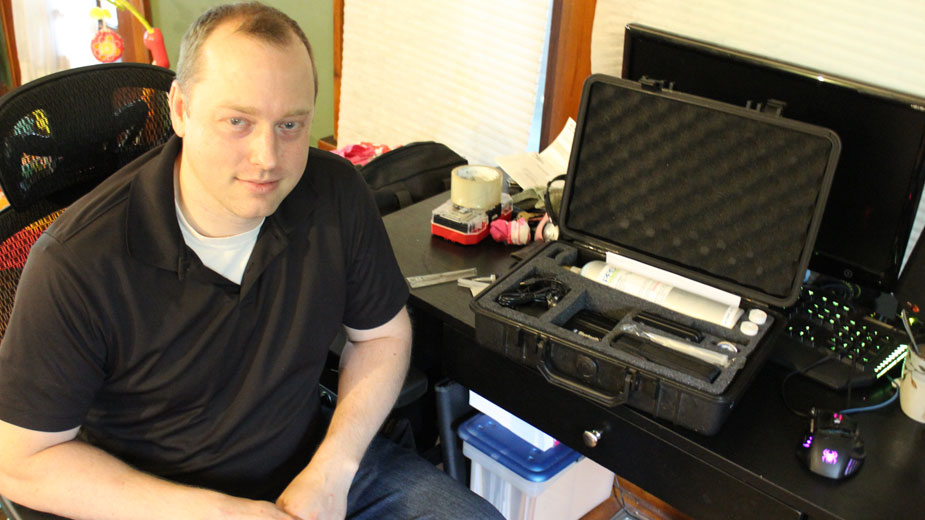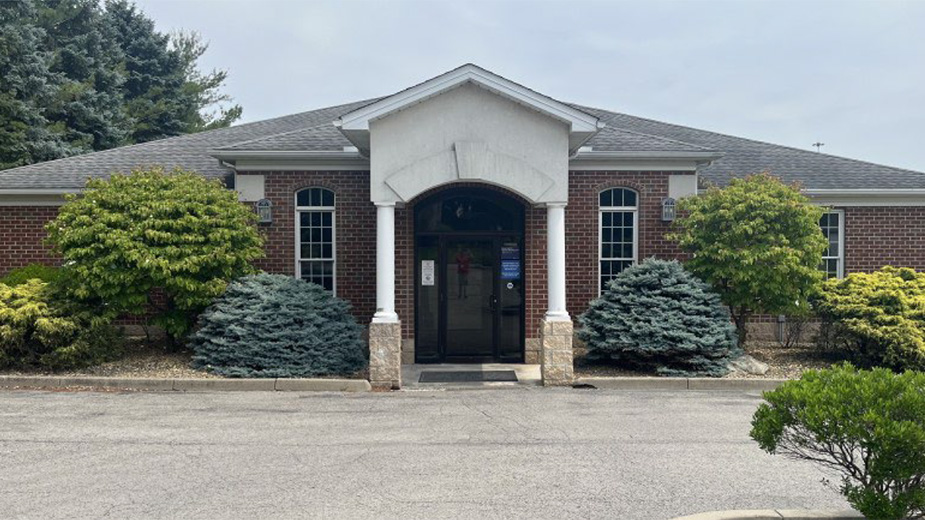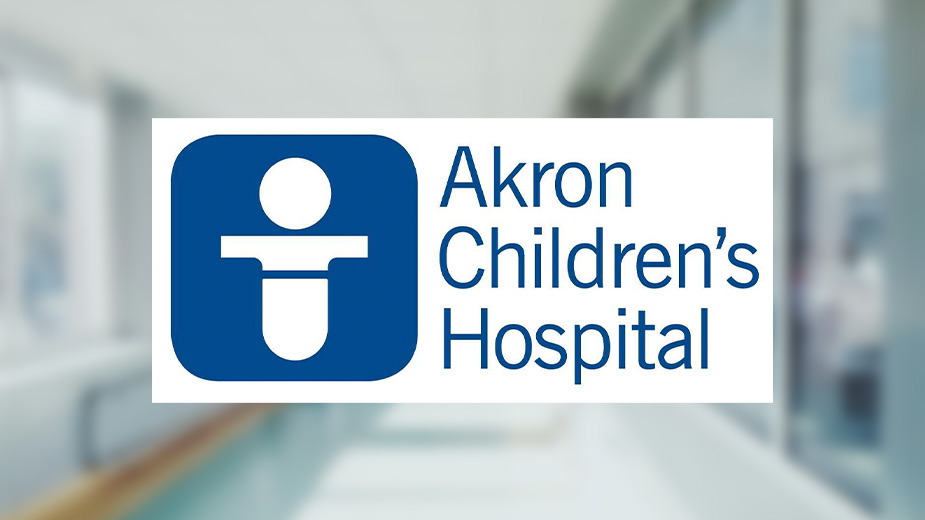Substance Abuse Affects Work at All Levels
YOUNGSTOWN, Ohio — It’s become a common trope in the coverage of drug epidemics over the decades: substance abuse affects all kinds of people in all communities, with no consideration for age, race, vocation or gender.
And, in a similar vein, so it affects all industries across the country and within the region.
“There are industries that are mandated by different regulations to do drug testing, but for the most part it’s not industry-specific,” says Ruth Bowdish, training manager at On Demand Drug Testing & Work Solutions, Austintown. “People have seen with the opioid epidemic and legalization of [medical] marijuana that the need transcends industries, from restaurants to construction to transportation to schools.”
Even within the drug treatment industry, the use of drugs is an impediment to the day-to-day operations in terms of recruiting staff, says Joseph Caruso, president and CEO of Compass Family and Community Services.
“We’re a drug and alcohol, mental health and social-service agency that’s been in the Valley for well over a hundred years,” Caruso says. The agency must be able to attract individuals who can comply with its drug-free workplace, and the tight labor market “hampers our ability to provide services.”
Almost entirely across the board, the top three substances causing problems for employers are marijuana, opioids and alcohol. Alcohol alone, the only of the three legal nationwide, is responsible for $74 billion in lost workplace productivity annually, a figure that includes losses from reduced earning potential, lower output and absences. According to the National Safety Council, employees with alcohol-use disorder miss 34% more days than sober employees.
The effect of opioids is estimated at a range of between $25 billion and $54 billion, the safety council reports, and reduced productivity around 18%. Marijuana, meanwhile, is the most-used illicit drug in the country, with 7.8% of those 12 and older reporting use within the past month and 2% who are considered dependent on the drug.
“We hear mostly from local businesses, especially labor [unions], that people are still not passing their drug tests due almost always to marijuana showing up,” says April Caraway, executive director of the Trumbull County Mental Health & Recovery Board. “We know that many have drug-free workplace policies that include marijuana, even if it’s medical, that excludes people from employment.”
The largest factor in companies adopting drug-testing policies, says On Demand Drug Testing’s Bowdish, is safety, whether because an incident occurred and no policy was in place or because of concerns over employees being under the influence at work. “Without a policy, their hands are tied. We encourage companies that don’t have a policy or don’t enforce their policy to get ahead of it before it causes problems,” she says.
At Sanford Drug Testing, Mineral Ridge, owner Jonathan Sanford reports that one local client, a restaurant chain, brought him in to perform drug tests.
“It went from 35 workers’ comp claims a year and after he started testing, it went down to two. It paid for itself just to have me come in there,” he says. “The No. 1 thing I hear is, ‘If we started doing it, we’d have nobody left.’ People know that other people are on it, but you have to weigh the options … Are things being stolen or are there fights happening?”
Sanford offers on-site alcohol screenings and collection for drug tests, the latter of which are sent off to area labs for processing.

“I do some instant tests, but when it comes to the [Department of Transportation] regulations, that all has to be sent to a lab,” Sanford says. “To just get started, you need nearly nothing. But, if you want to do anything involving the federal side, you have to have your DOT certification and your [breath alcohol technician] or [screening test technician] certification.”
And while drug-testing policies have long taken a zero-tolerance approach, Bowdish and the team at On Demand encourage a less stringent policy that directs those who fail drug tests to recovery options.
“That employee, if they test positive and are given that one chance, they’re usually an excellent employee and you don’t see any more problems,” says Kim DiPillo, director of operations at On Demand.
For those that do struggle to find employment, local agencies are working with area companies to find jobs for those in recovery.
“There are a lot of open jobs. We have a lot of people in the recovery community who can’t get jobs,” Caraway says. The Trumbull County Mental Health & Recovery Board works with the Youngstown/Warren Regional Chamber and county Department of Job & Family Services to “bring in roofing and construction companies to recovery meetings so they can directly link and work with people actively seeking employment,” she says.
One of the largest concerns in drug testing is the use of opioids. In January 2018, the U.S. Department of Transportation updated its test array to include four semisynthetic opioids frequently prescribed for pain management. The drugs remain legal when present in the system up to the prescribed amount, but must be tested to remain compliant.
There are also requirements at both the state and federal levels to become a contractor. Among them is the implementation of a drug-free policy statement, required personal testing and good-faith efforts to comply with the Drug-Free Workplace Act. The Ohio Bureau of Workers’ Compensation offers the Drug-Free Safety Program, which offers employers discounts of up to 7% for effecting safety-action plans, written policies, supervisor training and employee education.
In the current policy year, reports employer programs supervisor Michael Sendelbach, there are 6,323 employers taking part in the program and many are seeing reduced claims costs.
“We are seeing the positive benefits of the program. That financial piece is an extra incentive to defray some of the costs they incur with drug testing and training their supervisors,” he says. “A lot of them are already doing some sort of drug-free system at their place of business. It’s a natural progression for them to get involved in our program.”
At On Demand, says director of sales Megan Wine, the framework for helping companies to develop policies stems from the BWC platform.
“We help them figure out what program will work effectively for the employer. Based on their needs, we help them build their own policy, whether it be pre-employment drug testing, random testing, post-accident testing, reasonable-suspicion testing,” she says. “A good policy includes an expansive drug panel to test for as much as you possibly can. You want to make sure you understand your policy and that both the employer and employees understand what it actually means.”
Not all jobs have the same requirements. Even within industries regulated by the Department of Transportation – it provides mandates to six agencies – not all jobs are subject to the same levels of testing.
Half of workers who fall under the Federal Transit Administration, those working in mass transit, must be randomly selected for drug tests this year, for example.
Meanwhile, a quarter of those who hold a commercial driver’s license, who fall under the jurisdiction of the Federal Motor Carrier Safety Administration, are required by law to be tested.
Robert Thibodeau, safety director at Aim NationaLease in Liberty, says employees are divided into three categories: drivers, commercial motor-vehicle drivers and technicians. Still, all employees are held to the same standards, he notes.
“Some of our shop service technicians don’t hold CDLs, so for what we have is a non-DOT drug-and-alcohol policy that mirrors the DOT drug-and-alcohol policy,” he said. “Workers in this field are very aware of the requirements placed on them.”
With the opioid epidemic continuing across the country and the legalization of marijuana, whether for medicinal or recreational use, becoming more common, education and treatment are essential to keep workplaces moving.
“If someone fails a pre-employment drug screening, send them to a certified treatment provider. Give them the opportunity, once they’ve gotten treatment, to reapply for work,” Caraway says. “That helps businesses and people who may have an addiction problem.”
Marah Morrison contributed reporting to this story.
Pictured above: On Demand Drug Testing & Work Solutions’ director of sales Megan Wine and training manager Ruth Bowdish encourage employers to offer one-strike drug-testing policies instead of zero-tolerance.
Copyright 2024 The Business Journal, Youngstown, Ohio.



